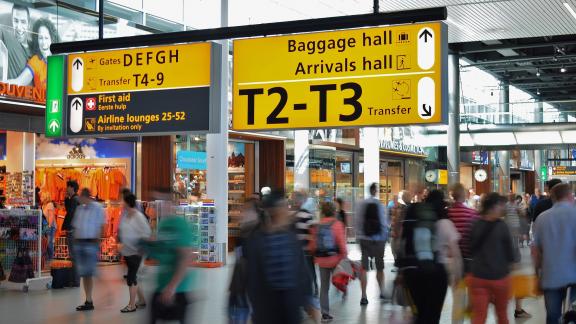Pastoral support and induction for international recruits

University Hospitals Sussex NHS Foundation Trust has a well-established international recruitment programme, led by Fiona Keeling, head of overseas nursing, since the 1990s. The trust also has tried and tested induction and training processes, including support for the Objective Structured Clinical Examination (OSCE).
Key benefits and outcomes
• 100 per cent retention rate.
• Ability to deploy new nurses at challenging time.
• Low-drop off of nurses in-country before start date.
• Reduced demand on OSCE training capacity due to uptake of virtual training.
What the trust faced
The trust has consistently implemented successful induction processes, which begin before the candidates arrive. New nurses receive dedicated support from existing overseas nurses, with most recruits being from the Philippines and supported by Netce Sia (senior clinical educator) and Christian Tulud (clinical educator), who ensure the nurses comfortably adjust to their new environment. They also act as a point of contact for any queries regarding life in the UK 24-hours a day and deliver the induction and the OSCE programme.
The robust induction and onboarding offer includes sharing material about the local area and the trust before candidates arrive, airport pickup, providing 24/7 support with accommodation when in-country, intensive OSCE training, lunch with previous cohorts of overseas nurses and a local induction to help them find a GP, a dentist, local supermarkets and places of worship.
The trust also runs a four-week OSCE training programme and support candidates from other neighbouring trusts with their training. The successes of this approach have been demonstrated by a 100 per cent OSCE pass rate and very high retention rates.
COVID-19, however, presented new challenges to the induction of overseas staff. Not only has the trust had to keep abreast of restrictions imposed by the Filipino government regarding the deployment of their healthcare professionals abroad, but they have also been unable to proceed with the kind of in-person support they would usually provide. OSCE training in-person was no longer viable with their training capacity, the usual airport pickups were no longer possible and lunches for cohorts to integrate with existing staff also had to be ceased.
What the trust did
The trust had to quickly put together workarounds to ensure that the good staff experience it had fostered stayed in place during the pandemic. Therefore, ensuring clear communication to overseas recruits from the beginning was extremely important. Updates are shared via direct email to those scheduled to come to the UK and, once here, the staff then had new virtual processes on MS Teams and WhatsApp group.
OSCE training was moved online as much as possible, with trainers developing video courses to help staff learn the basics. These are accessible for staff self-isolating upon arrival and small groups were then invited for practical learning once their quarantine period was over.
The process of arriving in a new country is daunting even when staff are not coming to the UK during a global pandemic, so it was preferred that new arrivals were not forced to quarantine on their own. With the cohort arriving together, they have been placed in flats of five with each flat forming their own bubble. They are given technology such as laptops with access to Microsoft Teams and are delivered food parcels (including home-cooked meals from the Filipino community for their first night) to help ease the transition into the UK and ensure they have contact with the trust and the outside world.
Challenges
There have been some unusual challenges: one bubble was unsure about leaving their flat when the fire alarm went off and rang the trust to ensure they were allowed to go outside. Of course, they were quickly told to leave the building and the issue has been addressed for future cohorts.
Every group has a feedback session (now on Microsoft Teams) at the end of the four-week induction period to go through what has gone well and what staff would have changed. Feedback has played a pivotal role in shaping our induction and OSCE programme.
Take-away tips
- Listen to the needs of the nurses with continuous evaluations using a plan, do, study, act (PDSA) cycle.
- Keep up-to-date with the changing situation both at home and abroad.
- Have a Plan A and Plan B in advance as circumstances are likely to change quickly.
Contact details
For more information from the trust, you can contact fiona.keeling@nhs.net, head of overseas nursing at University Hospitals Sussex NHS Foundation Trust.



